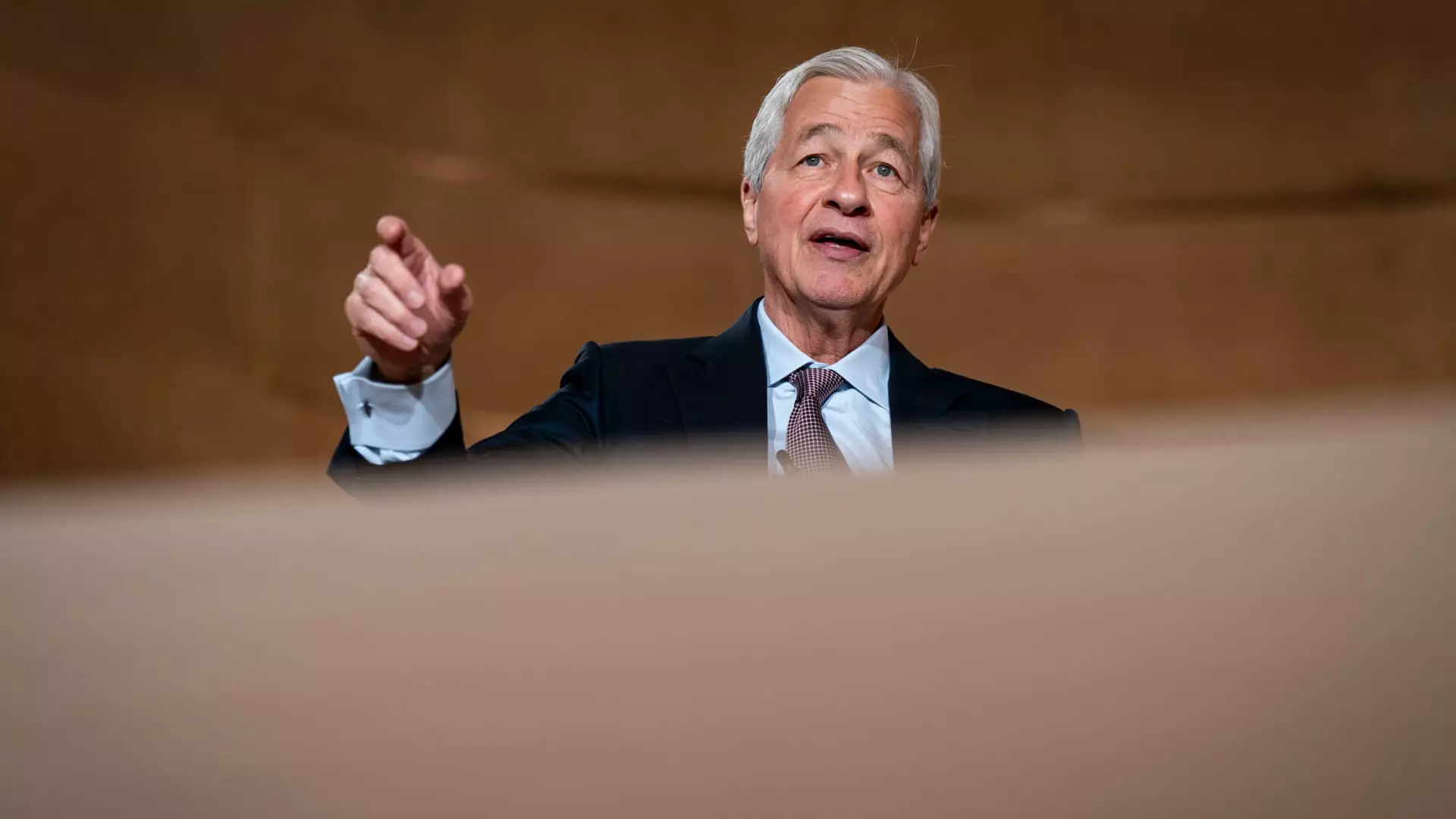In a world increasingly characterized by economic uncertainty, Jamie Dimon, the CEO of JPMorgan Chase, has highlighted critical issues that should not be brushed aside. During his remarks at the bank’s annual investor day meeting, Dimon articulated deep concerns about the lack of vigilance in financial markets and among central bankers regarding the risks posed by soaring deficit levels, international dependence, and tariffs. His assertions come at a time when complacency seems to be dominating the narrative around economic recovery, particularly in the aftermath of the pandemic.
Dimon’s apprehensions surrounding record U.S. deficits are not merely academic; they signal an urgent call to action that we must heed. The staggering national debt grows heavier by the day, with ominous implications for future generations. It is profoundly troubling that market participants appear content to enjoy the rally in stock prices without adequately factoring in the potential fallout from our fiscal irresponsibility. Dimon’s assertion that central banks are almost complacent paints a disconcerting picture—do these entities truly understand the gravity of the conditions they are navigating? The stakes could not be higher.
Inflation and Stagflation: Underestimated Threats
Dimon remarkably perceives an undercurrent of risk that many analysts seem to overlook. He alluded to the dangers of inflation and even stagflation—a toxic combination that could derail the U.S. economy. In his view, the market’s recovery from lows earlier in the year masks deeper vulnerabilities, and to relegate these concerns to the sidelines is nothing short of short-sighted. The connection between inflated asset valuations and declining earnings projections should serve as a wake-up call, yet Wall Street appears caught in a blissful denial.
The threat of stagflation, a situation where inflation surges concurrently with a stagnant economy, is particularly alarming. Dimon’s assertion—that the odds of such an outcome are approximately double what the market currently estimates—should send shivers down the spine of investors. A complacent attitude in the face of such a possibility can lead to catastrophic financial consequences, yet the markets seem ill-prepared for an extended period of economic stagnation coupled with rising prices.
A Call to Action for Corporations
Moreover, Dimon’s insights extend beyond macroeconomic health to the corporate sector, where a palpable air of indecision persists. Many corporate clients are currently hesitant to make significant acquisitions or engage in noticeable investments given the uncertain terrain. This cautious posture, reflected in declining investment banking revenues, highlights a broader hesitance that casts a shadow over the entire economic landscape. It’s a gambler’s paralysis; instead of moving ahead with verve, businesses are caught in a quandary, worried about potential pitfalls.
As earnings projections dwindle to near-zero growth, companies face an uphill battle to maintain profitability in a climate rife with unpredictability. Dimon’s remarks regarding falling S&P 500 earnings expectations resonate deeply—if companies do not adapt and innovate with alacrity, the reverberations will eventually reach the stock market, which could face further corrections. The implications here underscore a critical juncture—will corporations rise to meet these challenges, or will fear paralyze their ambitions?
The Dimon Era: Transitioning Leadership
Throughout these conversations, one cannot help but notice Dimon’s signals about his eventual successor. As he nears the end of his remarkable tenure, the strategic foresight he provides serves not just as guidance but as a clarion call for future leaders of the financial sphere. Marianne Lake’s extended presentation time indicates her rising prominence in the bank’s hierarchy and perhaps serves as a hint towards a future transition that could profoundly affect JPMorgan Chase’s strategic direction.
Leadership transitions in major corporations require a vision that can navigate tumultuous waters, especially during economic distress. As Dimon ponders his legacy and the next chapter for JPMorgan, shareholders should be acutely aware of who will carry the mantle forward. The combination of experience and fresh perspectives could very well determine how the institution withstands future financial storms.
In an era where complacency can masquerade as confidence, Jamie Dimon’s candid reflections provide a necessary counterbalance. It’s time we confront the uncomfortable truths he advocates—the economic landscape demands our vigilance and proactive engagement if we hope to secure a more promising future.

